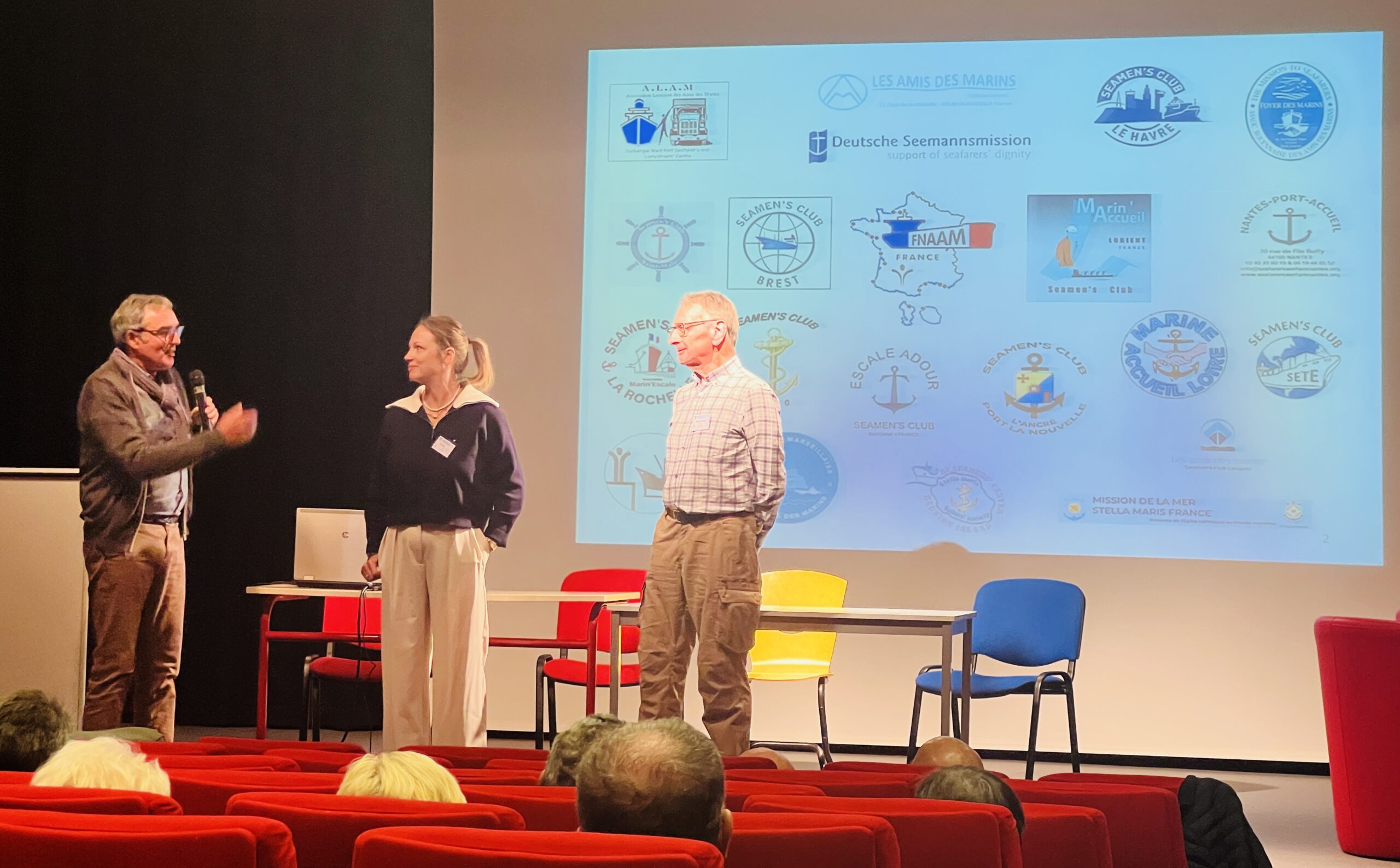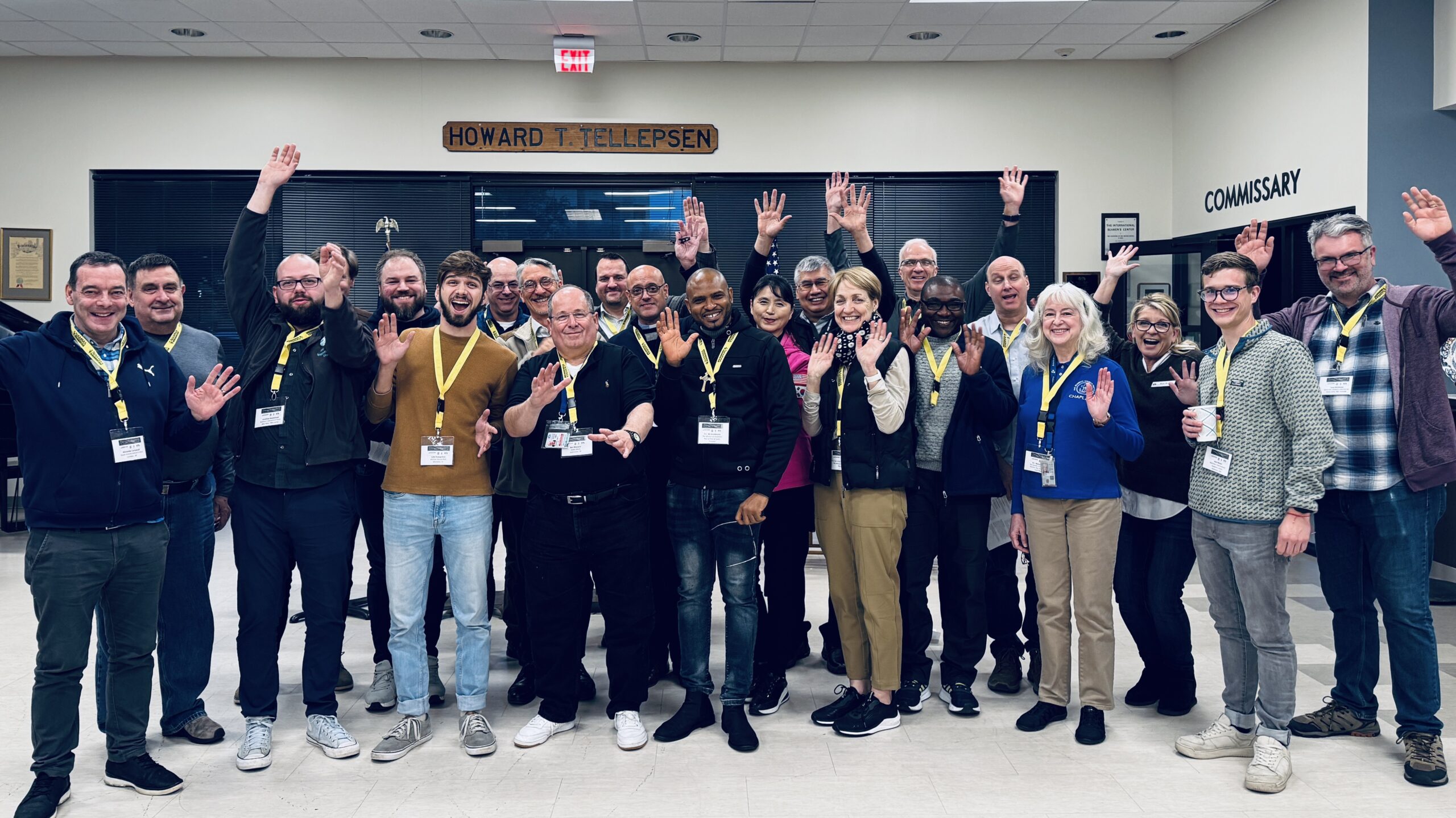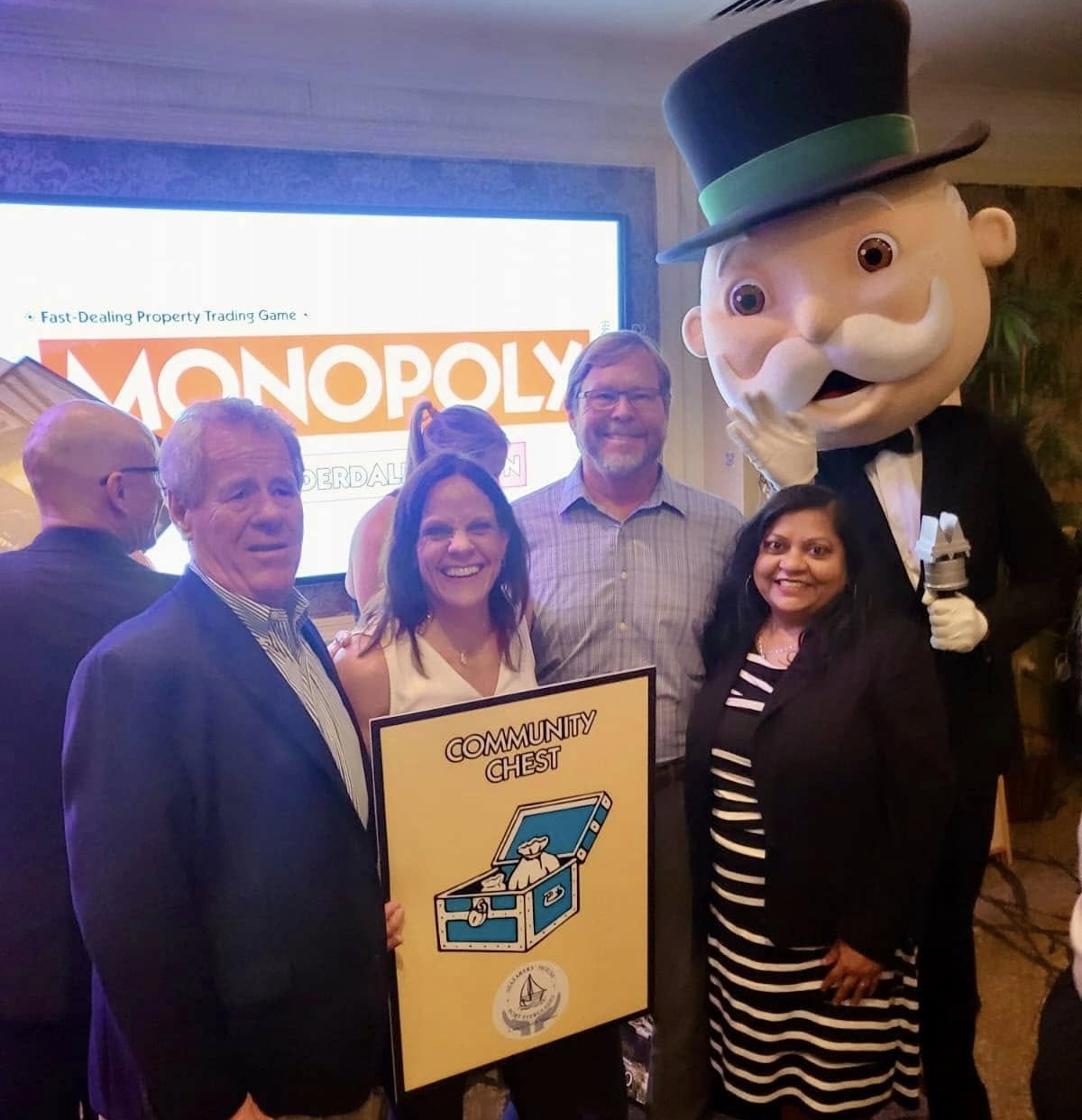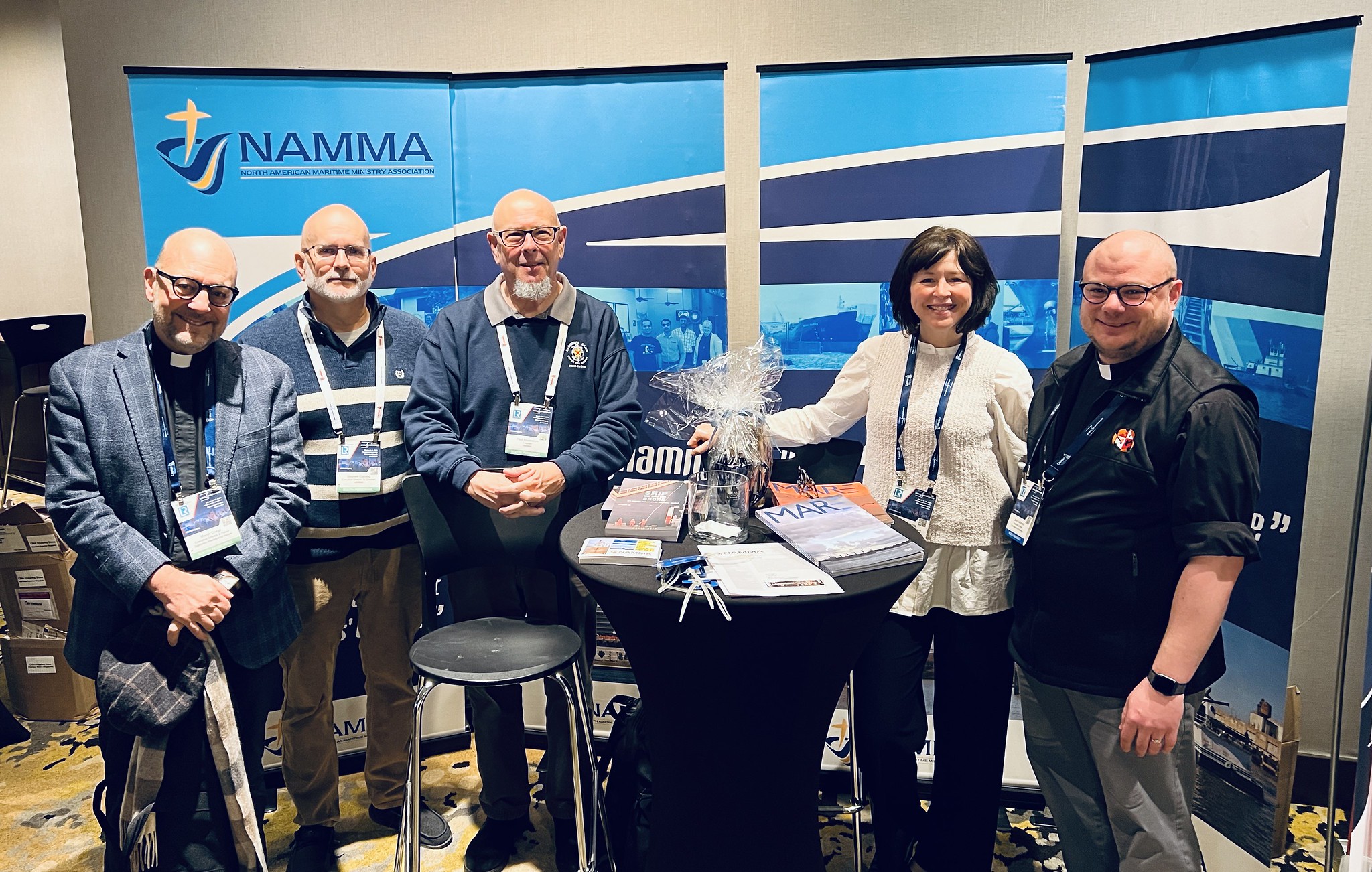The Congress and General Assembly of the Fédération Nationale des Associations d’Accueil des Marins (FNAAM), hosted by Marin’Accueil in Lorient, proved to be a insightful gathering of maritime welfare organizations, focusing on the well-being of seafarers across France. Held over a two-day period, October 12-13, the event combined a variety of discussions, workshops, and strategy sessions to address the challenges and successes in seafarers’ welfare.
The first day began with a morning workshop titled “Bien être des marins,” where international leaders such as Geoffroy Lamade from ITF, Jason Zuidema from ICMA, and Simon Grainge from ISWAN presented a comprehensive overview of the current state of seafarers’ welfare. Topics like fatigue, shore leave, and the mental health resources available to seafarers were discussed, with an emphasis on addressing the unique challenges faced by women seafarers. Technostress, exacerbated by increased technology on board, also stood out as a growing issue, especially as the industry implements strategies for decarbonization and internet access on board continues to expand. The workshop underscored the necessity of continued partnerships and collaboration to ensure progress in seafarers’ well-being.
At the heart of the congress was the afternoon Plénière des Foyers d’Accueil, a session where representatives from seafarers’ centers across France presented the unique challenges and opportunities they face in their work. This plenary session was particularly poignant, as it highlighted the diverse needs of seafarers and the innovative ways in which different centers are addressing them.
One of the most pressing issues discussed was the importance of responding to seafarers’ needs. Emmanuelle Trocadero, Director of Marin’Accueil in Lorient, emphasized that their priority is ensuring seafarers leave their center with their needs fully met. Lorient, which serves around 130-140 seafarers per month, has focused on being available six days a week, offering personal assistance, ship visits, and flexibility based on seafarers’ schedules. This approach exemplifies how Marin’Accueil tailors its services to ensure that no seafarer is left without support. The center’s dedication is further demonstrated by its new building costing €300,000, which has enabled them to improve their services.
Another key issue was the challenge of recruiting volunteers, a common theme across multiple centers. While some centers, such as Nantes-St. Nazaire, have made strides by adding six new volunteers this year, others are struggling to recover their volunteer base post-COVID. In Brest, the team have maintained a dedicated group of volunteers who continue to support the center’s activities, including ship visits and organizing transportation for seafarers. However, like many centers, they are also concerned about the long-term sustainability of volunteer recruitment. Brest, which welcomes around 5,000 seafarers annually, has successfully created a sense of community among its volunteers, hosting quarterly “café 4 heures” gatherings where both paid staff and volunteers can exchange ideas and solutions.
The discussion also underscored the importance of stable finances and fundraising efforts. Many centers shared their strategies for securing the necessary funds to continue providing essential services. For example, the center in Le Havre, which sees around 8,500 seafarers annually, is in the process of moving to a new 200m² space with substantial renovations. The challenge of funding this move has been significant, with the center relying on its own reserves to cover €40,000 of the project’s cost. Similarly, other centers are working towards stable financial footing, recognizing that without proper funding, they cannot meet the growing needs of seafarers.
Another important theme was the continued emphasis on providing personal help and ship visiting. The centers have acknowledged that while some have reached pre-pandemic activity levels, others are still on the way. Nonetheless, all agreed that ship visiting remains a vital component of their mission. In Nantes, for instance, they prioritize ship visits, believing that personal engagement with seafarers is crucial for understanding their needs and offering real-time support. Brest, with its 32-year history of seafarer welfare, has continued to prioritize transportation and personal visits, despite facing challenges from the local shipyards that comprise 70% of their clientele.
A final theme throughout the workshop was the importance of increasing visibility through media and community engagement. Many centers recognized that to sustain their efforts and attract both volunteers and funding, they must raise awareness about the vital work they do for seafarers. Centers like Le Havre have already made strides by engaging with local media, such as their collaboration with France 3 to showcase the unique contributions of seafarers and their welfare needs. Others, like Port le Bouc, are utilizing new platforms such as podcasts to highlight their mission and reach a wider audience. By enhancing their presence in the media and building stronger ties with their local communities, these centers hope to not only secure more support but also foster a deeper understanding of the challenges seafarers face. Increased visibility is key to ensuring that their crucial work continues and that seafarers feel supported both in port and beyond.
For more on FNAAM see their website here.





